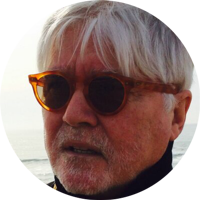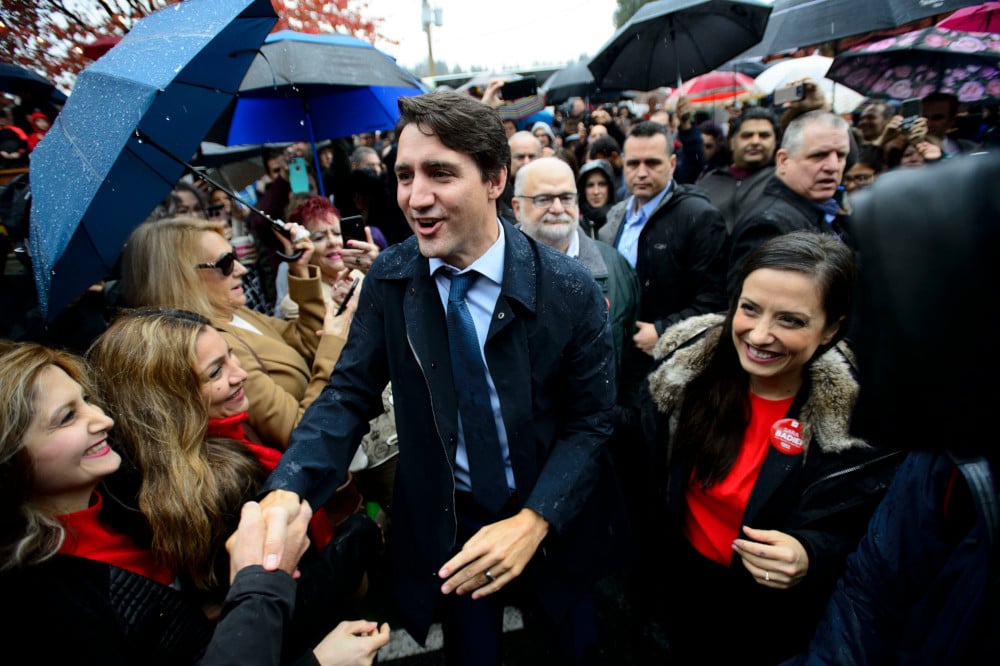Justin Trudeau is getting a second chance to run the country.
But this time he is the chastised head of a minority government facing a divided country and the daunting task of making a fractured parliament work.
Although the Conservative party gained at least 25 seats, the party did not come close to equaling the Liberals, as many polls were predicting. Although Andrew Scheer remains the leader of the Official Opposition, he ultimately delivered a dreary, also-ran performance that mirrored his not-for-pay-TV campaign style of grin to win.
If there is a new star in Canadian politics, at least an embryonic one, it is NDP Leader Jagmeet Singh. His NDP won about 25 seats tonight, against all odds. That makes the NDP a key player in the minority government politics that will determine whether Canadians see a period of political stability or take another trip back to the polls.
For Elizabeth May and the Green Party of Canada, it was a night when the hoped-for Green wave turned into the Green ripple. Still, as I write this the Greens are on track to elect at least three MPs and almost double their share of the popular vote, to about six per cent. But May fell short of the 12 seats needed for official party status and the party won’t have enough seats to exert strategic influence on the new minority government.
The only big winner was the Bloc Québécois. Quebec voters sent Yves-François Blanchet and at least 32 MPs to Ottawa. In the process, the Bloc regained party status and more than tripled its standing in Parliament.
Maxime Bernier, the leader of the People’s Party of Canada, was the only party leader defeated tonight, losing his seat in the Beauce. He had represented the riding since 2006 as a Conservative and was defeated by the CPC candidate. The People’s Party failed to win any seats and captured less than two per cent of the vote.
Jody Wilson-Raybould, whose whistle-blowing on the SNC-Lavalin scandal Trudeau rewarded by ejecting her from caucus, exacted a measure of revenge by winning her Vancouver–Granville riding this time as an Independent, narrowly defeating the Liberal candidate.
But Jane Philpott, who resigned from the Trudeau cabinet over the same scandal and also ran as an Independent, lost in her riding of Markham–Stouffville.
Veteran Liberal cabinet minister Ralph Goodale was also on track to lose his seat in Regina–Wascana.
The vote was not good news for either of the two main parties. The Liberals dropped to 34.5 per cent of the popular vote, down five points from their majority win in 2015. The Conservatives, with 34.4-per-cent support, only improved slightly on their 2015 performance.
Although the Liberals won the most seats, their majority is gone after one term, the same fate that befell Justin Trudeau’s father in 1972. The Liberals lost more than 20 seats, a testament to a series of blunders, broken promises and scandals that plagued Trudeau in his first term.
From blackface to SNC-Lavalin and Jody Wilson-Raybould, from playing Mr. Dressup in India to fighting a Canadian Human Rights Tribunal award to disadvantaged First Nations kids, Canadians’ confidence in Trudeau was eroded. Still, he wasn’t voted off the island and that matters.
Scheer now finds himself in leadership limbo. Harper’s revived agenda from 2015 didn’t work with the electorate, just the unshakable Conservative base.
Worse for Scheer, the Conservative braintrust rightly believed Trudeau was highly vulnerable in this election. The fact that Scheer was unable to win even a plurality of seats against a wounded prime minister found to have broken the law will weigh heavily on party strategists as they look forward to the next election.
Even during the campaign, there were rumblings that former Harper cabinet minister Peter MacKay was waiting in the wings to assume the Conservative leadership if Scheer faltered. That murmuring may now find a louder voice, despite MacKay’s denials.
The battle between the two mainstream parties that have run every federal government since Confederation also revealed what Canadians are thinking about the role of government.
While Trudeau talked about progressive spending and some new taxes to pay for it during the campaign, Scheer ran as the tax-cutting fiscal conservative, except for the Tim Horton’s planks of their platform — things like tax credits for hockey and music lessons. (More Harper cold leftovers.)
Just as they did in 2015, Canadians rejected Conservative austerity and chose Liberal spending, though with much less enthusiasm than four years ago.
The Conservatives’ lack of support may not just have been about old ideas that are out of favour with the public. Voters may also have been rejecting the same sneakiness and dirty pool that suffused the Harper years and that showed up again in Scheer’s campaign.
The Conservative leader was less than forthright about sharing the fact of his dual citizenship with voters, a hypocritical stance given the way the party attacked people like Stéphane Dion and Thomas Mulcair for holding two passports.
And at the end of this low-road campaign, the Conservative party once again disgraced itself with dirty tricks, hiring political consultant Warren Kinsella to demonize People’s Party Leader Maxime Bernier in an attempt to keep him out of the TV leaders’ debates.
Singh came off tonight far better than either of the traditional party leaders, despite the fact the NDP results look like failure. The party’s Quebec base, 14 seats, was decimated as the NDP was in the crossfire between the Liberals and the Bloc Québécois. All told, the party lost at least 14 seats and fell to 25 MPs.
But Singh almost singlehandedly pulled the NDP out of a nosedive that some observers believed would end in total disaster. There was a time during the campaign when it looked like the party was headed for single digits in its parliamentary caucus, and the loss of official party status.
Singh turned the lament for a dying party into a redemption song. Part of his appeal was based on the NDP’s progressive platform, featuring everything from free dental care for some Canadians to a universal pharmacare program.
But beyond the well-worn litany of promises was Singh’s personality itself — inclusive, loving, even cool. As the campaign wound down, there he was on TikTok, a social network designed for millennials, putting up videos that went viral. He looked like the only leader who was having fun. Singh will now be the power broker in Trudeau’s minority government.
The biggest disappointment of the night belongs to the Greens. Early in the campaign, everything seemed to be going Elizabeth May’s way. The cause she has championed for most of her life suddenly became top of mind. The UN Intergovernmental Panel on Climate Change had confirmed the need for a rapid response to the climate crisis.
Canada declared a climate emergency, and thousands of Canadians, many of them young people, took to the streets of Vancouver and Montreal to demand action from governments. Teenager Greta Thunberg took the adult world to the woodshed for its mistreatment of the environment, appearing on every mainstream media outlet in the world.
It looked like a threshold had finally been crossed and voters would demand action on climate change.
That didn’t happen. Canadians returned a prime minister who assures his fellow citizens that they can have it both ways — both protect the environment and buy and build pipelines to carry Alberta bitumen to market.
Which raises an existential question for the Greens: Where do they take their pitch on climate change now, and what can May do to advance the Green policies that she hasn’t already done?
And there is one final reality that comes out of tonight’s vote. Former prime minister Mackenzie King famously said of Canada, “We have too much geography.”
That geography now looks like several countries, not one.
The Liberals own the East, and the Conservatives own much of the West. Those two solitudes have now been joined by a third one — a Quebec where the Bloc Québécois, its separatist plans dormant for now, is suddenly a force again in the big piece of real estate known as Canada. ![]()
Read more: Election 2019, Federal Politics

















Tyee Commenting Guidelines
Comments that violate guidelines risk being deleted, and violations may result in a temporary or permanent user ban. Maintain the spirit of good conversation to stay in the discussion.
*Please note The Tyee is not a forum for spreading misinformation about COVID-19, denying its existence or minimizing its risk to public health.
Do:
Do not: